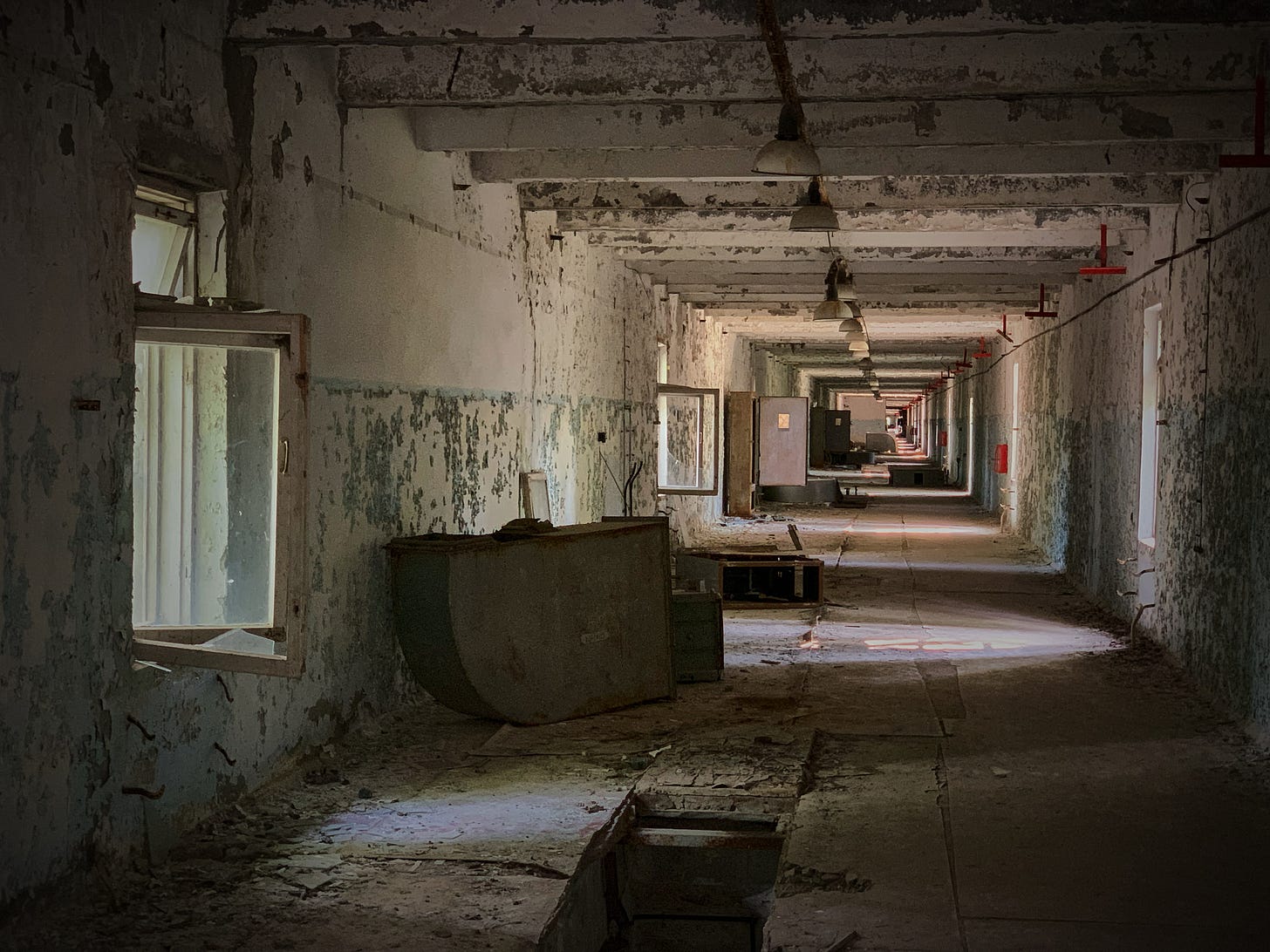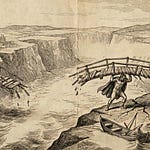Please read the short story that accompanies this piece: The Chain Letter
When I was a teen on a trip to Sri Lanka, we went to visit some of the ancient cities whose ruins you find peppered throughout that island. Some of these ruins are over 2,000 years old. Walking through them with my father, I asked him the same question I have since repeated to myself in France, Spain, England, and countless other places: Where are the ruins of the ordinary people? Who tells their stories?
Unfortunately, the sands of time swirl in a way that continually obscures, removes, and changes the voices and existence of people. When you study an event or a person, you stretch your hand back into the past and derive massive conclusions from minuscule shreds of evidence. Worse, we examine and understand the past through a flawed lens of our present context. A leader considered terrible during their lifetime might now be revered as a hero due to our present beliefs of what is "good." The amount of sources available to us from the past is extremely limited and often preserves the voices of the rich, powerful, or otherwise "important."
In going through our day-to-day lives this feels like a problem that we have solved. Today, the amount of data and content will surely mean that the voices of you and me, of the random person on the street, will actually matter and survive into the future. For the first time in history, there are written records of all our venting, pictures of what we ate on any given morning, Reddit posts of the troubles we've had, along with a seemingly bottomless pit of video.
We would all be forgiven for thinking we had solved this problem, and we would all be wrong.
Already, some quarter of the original Internet has disappeared and is no longer online. I would hazard a guess that another large portion might exist but in a different form and edited from its original material. Even the Internet Archive can only keep so much. The Internet Archive now holds 835 billion web pages if we are looking at that type of content alone. A copy of the known Internet is now 145 petabytes of data and growing. Think about that: 1 petabyte is 1,000 terabytes. So if you have a 1-terabyte storage computer, you would need 145,000 of them. That's no small task. I would imagine it's not even capturing the true breadth of content on private or semi-private systems behind logins, and so on.
When I was researching my own technological journey over the past 30 years, the Internet Archive only had a fraction of the writing I put online. A fraction of the photos that I had posted. And it goes deeper. You would think I would have access to that writing on disks—probably yes—but the formats have changed; some have simply just died. Perhaps they are on some old email address—absolutely likely—but I've lost access to the passwords and ability to reset them. Then there are all the ephemeral things that mattered to me which I never bothered to digitize at all: negatives, VHS tapes of our fan fiction movie based on 1971's Shaft called "Shaft on the Rock." Yes, that was a real thing.
Even all this pales in comparison when you realize that just a few companies in the world own and store all the content we create. When you buy games digitally, you would expect them to work forever. That's simply not true. The very first game that I ever had my name attached to is Neverwinter Nights by BioWare Corp. In order to play online, the game needed to connect to something called "the master server." This was a singularly compact piece of software originally written almost entirely by an amazing programmer and friend (Andrew G.). Who keeps such a thing running in perpetuity after sales of the game have collapsed?
Luckily, in this case, a company of ex-BioWarians, Beamdog, did continue running the software needed to connect for the Enhanced Editions of the game after GameSpy ended support. But in many cases, the systems that allow other systems, creative works, etc., to even be available go away forever on the whim of economics and even the practices of companies. In this case, gamers are rising up in protest and holding some of these companies to account.
Your email, documents, and pictures are also not yours. They may be yours by copyright, but if tomorrow the servers they are hosted on were turned off, or you were blocked from access, they are gone from you forever unless you happen to have a backup. I am sure most of the world functions on mobile systems without backups and relies entirely on the various companies' cloud services. As humans, we tend to predict the future based on the present. Our present ability to provide electricity to these systems and the geopolitics that allow these pipes to work around the world, for example, just don't seem to be a problem. Will that continue? Your guess is as good as mine!
How do you feel as parts of history disappear and get changed? Wikipedia, for example, relies on online sources that are continually changing. They who control the sources control the narrative of any event that you read about. Does that mean you can change the past? Yes, we are already rewriting, without knowing it, the history of our present. If it were not for passion projects such as the invaluable Internet Archive, reality would swirl too readily into the foggy past.
The story I wrote, The Chain Letter, plays upon the trope of a forgotten type of viral email that we all received back in the 90s. I wanted to encapsulate what is happening on the Internet as content slowly disappears into the psyche of a single person. If tomorrow your digital world disappeared through no fault of your own, would anyone know who you are? In a world with so much digital content, we have come to accept and call commonplace something that is quite remarkable. Should a disaster happen today that removes our access to all that data, we would actually be not far removed from our ancestors whom we sometimes condescendingly refer to as "primitive."
I wonder if someday a child looks at the ruins of our many buildings, sees the scattered computer pieces, maybe even flickering screens in an unknowable language, and asks their parent: "Who were these people?" It may be that again, the works and voices of the ordinary, like you and me, will continue to remain silent and forgotten.












